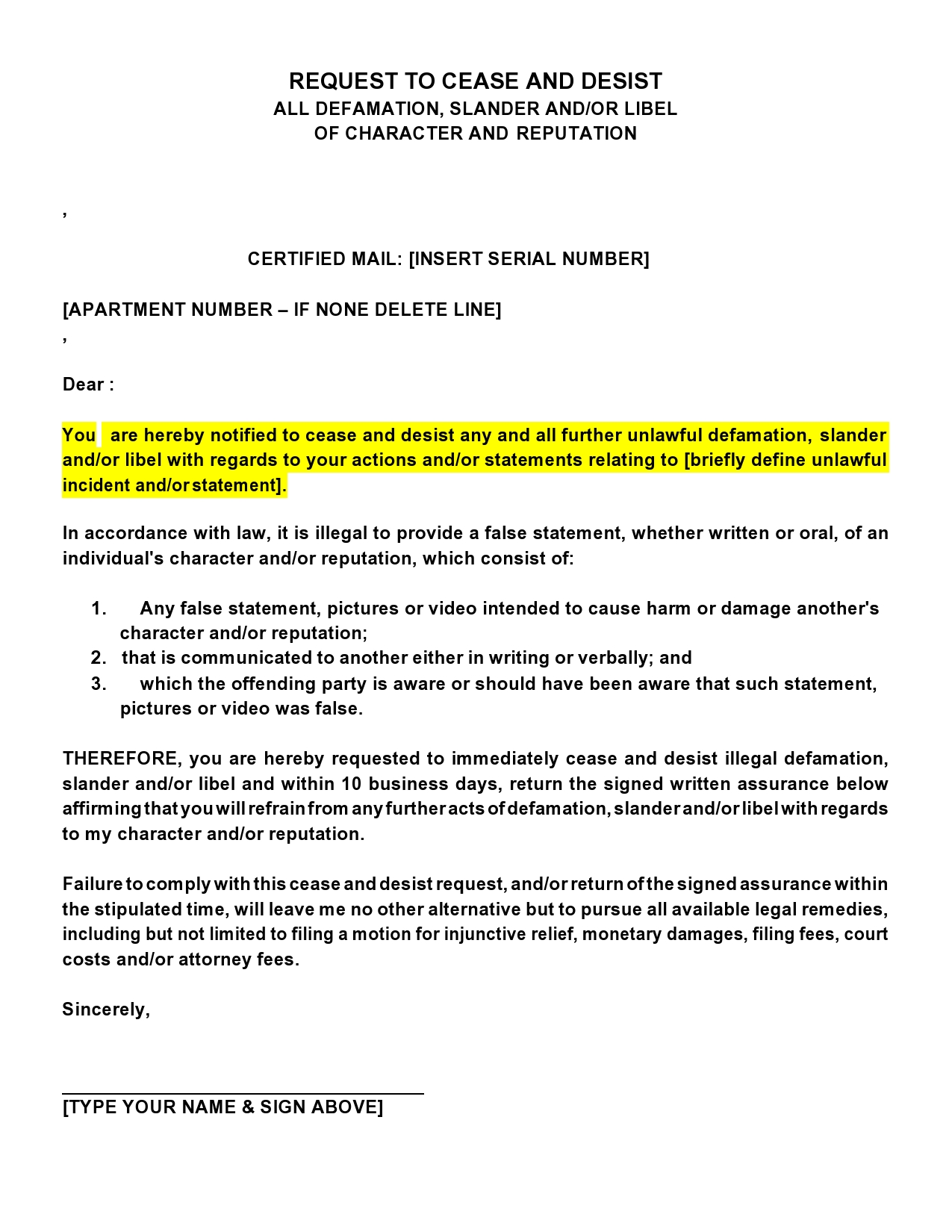Defamation: Understanding The Legal and Practical Implications
Editor's Note: Defamation: Understanding The Legal And Practical Implications has published today, and it is important to know because "Defamation: Understanding The Legal And Practical Implications".
After doing some analysis, digging information, made Defamation: Understanding The Legal And Practical Implications we put together this Defamation: Understanding The Legal And Practical Implications guide to help target audience make the right decision.
Key differences or Key takeaways:
| Points | Defamation |
|---|---|
| Meaning | The publication of a false statement that harms the reputation of an individual or business. |
| Elements | Falsity, publication, fault, and damages. |
| Defenses | Truth, privilege, consent, and statute of limitations. |
| Remedies | Damages, injunctions, and retraction. |
Main article topics:
FAQ
This page provides answers to frequently asked questions about defamation, a legal wrong that occurs when a false statement injures a person's reputation. Understanding the legal and practical implications of defamation is crucial for individuals, organizations, and the media.

Slander Defamation - Source ar.inspiredpencil.com
Question 1: What are the essential elements of defamation?
Defamation requires the presence of four elements: falsity, publication, fault, and damages. Falsity means the statement must be false or misleading. Publication means the statement must have been communicated to at least one other person besides the plaintiff. Fault refers to the defendant's intent or negligence in making the statement. Damages refer to the harm suffered by the plaintiff as a result of the statement.
Question 2: What are the different types of defamation?
There are two main types of defamation: slander and libel. Slander is defamation in oral form, while libel is defamation in written or permanent form. Both slander and libel can cause serious harm to the plaintiff's reputation.
Question 3: What are the defenses to defamation?
There are several defenses to defamation, including truth, privilege, consent, and fair comment. Truth is an absolute defense, meaning that if the statement is true, it cannot be defamatory. Privilege protects certain statements made in certain situations, such as statements made in court or during legislative proceedings. Consent can be a defense if the plaintiff agreed to the publication of the statement. Fair comment allows for the expression of opinions on matters of public interest.
Question 4: What are the remedies for defamation?
The remedies for defamation can include damages, injunctions, and retractions. Damages are monetary compensation awarded to the plaintiff for the harm suffered. Injunctions can be granted to prevent the further publication of defamatory statements. Retractions can be issued by the defendant to correct the false statement and apologize for the harm caused.
Question 5: How can I protect myself from defamation?
There are several steps that individuals and organizations can take to protect themselves from defamation. These include verifying the accuracy of information before publishing it, avoiding making statements that could reasonably be interpreted as defamatory, and seeking legal advice when necessary.
Defamation is a serious legal wrong that can have significant consequences. Understanding the legal and practical implications of defamation is crucial for individuals, organizations, and the media. By being aware of the elements, types, defenses, and remedies for defamation, individuals and organizations can protect themselves from liability and ensure that their reputations are protected.
For more information on defamation, please refer to the following resources:
- Cornell Law School: Defamation
- American Bar Association: Defamation Update
- Electronic Frontier Foundation: Online Defamation
Tips
When confronted with a defamation case, considering the following tips can aid in addressing the legal and practical implications effectively:
Tip 1: Understanding Defamation Laws
Familiarize yourself with the specific defamation laws applicable in your jurisdiction. Laws vary across different countries and states, so it is essential to seek legal advice to grasp the nuances of defamation within the relevant context.
Tip 2: Gathering Evidence
Collect all relevant evidence related to the alleged defamation, including statements, publications, and communications. This evidence will serve as the foundation for building a strong case.
Tip 3: Seeking Legal Advice
Consult with an experienced legal professional specializing in defamation law. Their guidance will prove invaluable in navigating the legal process, protecting your rights, and pursuing appropriate remedies.
Tip 4: Mitigating Damages
Explore options to mitigate potential damages resulting from defamation, such as issuing a retraction or apology. These actions can demonstrate remorse and potentially reduce the severity of consequences.
Tip 5: Preserving Reputation
Actively manage your online presence and reputation during the defamation case. Monitor social media, search engine results, and other platforms to address any negative or false information.
By adhering to these tips, individuals involved in defamation cases can make informed decisions, protect their interests, and effectively navigate the legal and practical challenges associated with defamation. Refer to the comprehensive guide Defamation: Understanding The Legal And Practical Implications for further insights and guidance on this subject.
Defamation: Understanding The Legal And Practical Implications
Defamation can have significant legal and practical consequences. Understanding key aspects is crucial for navigating this complex topic.
- Definition: False and damaging statement harming reputation.
- Elements: Publication, falsity, harm, fault.
- Defenses: Truth, privilege, consent.
- Remedies: Compensation, injunctions, retraction.
- Online Defamation: Expanding scope, potential for widespread harm.
- Reputation Management: Protecting and restoring reputation after defamation occurs.
Defamation is a complex and evolving area of law. Understanding the key aspects outlined above is essential for individuals and organizations to protect their reputations and navigate the legal landscape surrounding defamation.

Sued for Defamation: How to Prepare Your Defense - Hepworth Legal - Source www.hepworthlegal.com
Defamation: Understanding The Legal And Practical Implications
Defamation is a complex legal concept that can have serious consequences for both individuals and businesses. It is important to understand the legal and practical implications of defamation, so that you can protect yourself from liability and ensure that your rights are protected.

Defamation Law: Understanding the Basics and Implications - Source desklib.com
Defamation is a civil wrong that occurs when someone makes a false statement about another person that harms their reputation. The statement must be published, meaning that it must be communicated to at least one other person besides the person who made the statement. The statement must also be false, and it must cause harm to the person's reputation.
There are two main types of defamation: slander and libel. Slander is a spoken defamatory statement, while libel is a written or published defamatory statement. Libel is generally considered more serious than slander, because it is more permanent and can reach a wider audience.
Defamation can have serious consequences for both individuals and businesses. Individuals who are defamed may suffer from emotional distress, loss of reputation, and financial harm. Businesses that are defamed may suffer from lost sales, damage to their reputation, and difficulty attracting new customers.
There are a number of defenses to defamation, including truth, privilege, and consent. Truth is a complete defense to defamation, meaning that if the statement is true, it cannot be defamatory. Privilege is a defense that protects certain statements from being defamatory, even if they are false. Consent is a defense that protects statements that are made with the consent of the person who is defamed.
If you believe that you have been defamed, it is important to take action immediately. You should contact an attorney to discuss your options and to protect your rights.



